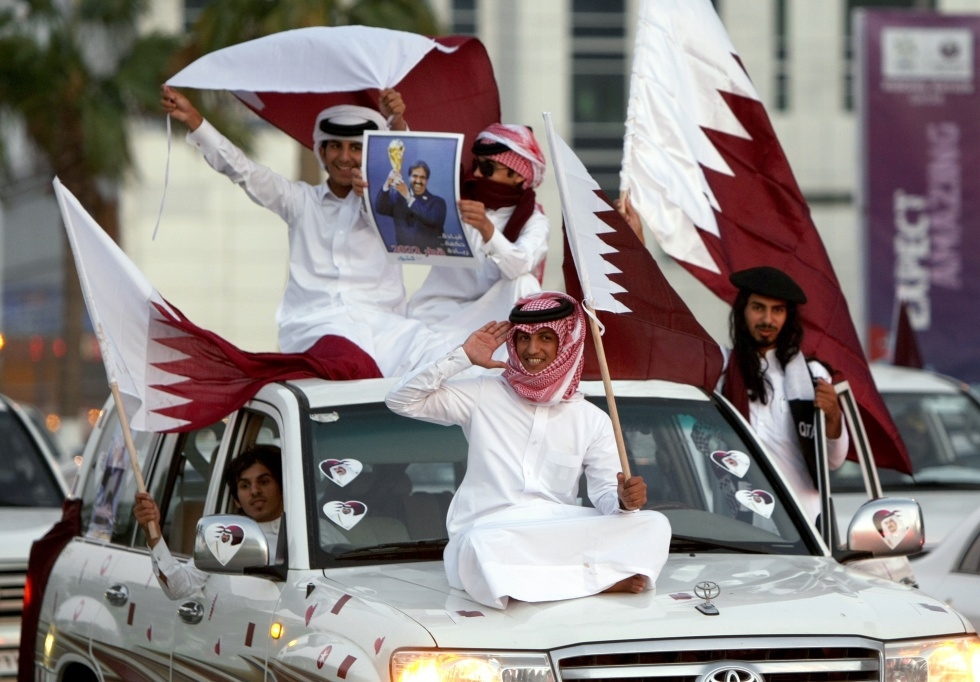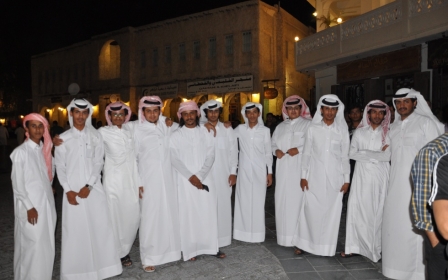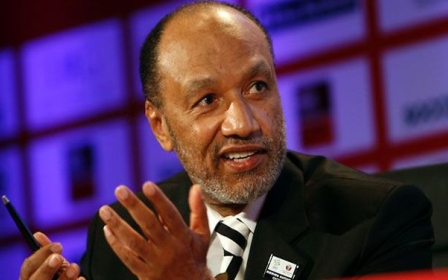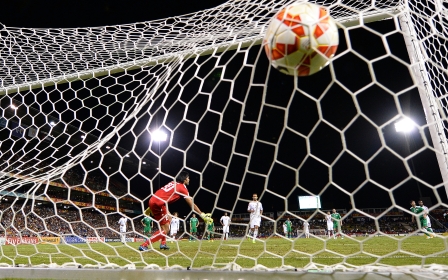FIFA task force proposes winter World Cup tournament for Qatar 2022

The FIFA task force announced its recommendation for the World Cup 2022 games to be held in Qatar during the winter, in a meeting conducted in Doha on Tuesday.
The final decision will be ratified next month in Zurich, but the recommendation has mostly garnered approval from the top footballing officials. The task force suggested that the tournament should be shortened and held from late November to late December, yet Britain’s FIFA vice-president Jim Boyce expressed qualms on running the final game immediately before Christmas.
“I think that is too close to Christmas,” he said. “That’s the only reservation I would have and I would like it a week earlier, but I want to wait until the FIFA executive committee meeting to hear all the details about the dates.”
Plans to schedule the tournament in January/February of the same year were ruled out because that would clash with the 2022 Winter Olympics.
Boyce hailed the decision to move the World Cup games to the winter as “common sense” and played down the disorder that European leagues will face in squeezing an international tournament in the middle of their respective league schedules.
“I welcome the fact all the stakeholders have been involved and although this is not going to please everyone I think common sense has prevailed,” Boyce said. “It will cause a lot of disruption but it is eight years away and people should have enough time to make it work.”
The English Premier League’s executive director Richard Scudamore has opposed the proposal to move the World Cup to winter.
In a statement released on Monday, the Premier League voiced its disapproval, insisting the winter plan was not practical.
“The 2022 FIFA World Cup was bid for and awarded to Qatar as a summer tournament,” the statement read. “The prospect of a winter World Cup is neither workable nor desirable for European domestic football.”
However, the Bahraini Asian confederation president Sheikh Salman bin Ebrahim al-Khalifa, who is the chairman of the task force, has stated matter-of-factly that the issue has already been determined.
“The matter is resolved,” he said last month. “The period best suited for hosting the 2022 World Cup in Qatar will be in November and December because for sure it needs to be played in the winter.”
High temperatures, political pressure
Qatar, which won the bid in 2010, has been on a roller-coaster ride of controversy regarding the manner in which it secured the bid, its human rights records, and its unbearable summer temperatures.
FIFA President Sepp Blatter hinted last year that some of the European executive committee members were influenced into voting for Qatar due to “political considerations” by their heads of states, but stopped short of saying that the tiny Gulf country “bought” the bid.
“I will never say that they bought it, because it was political pushing,” Blatter said. “Really, both in France and Germany.”
Michel Platini, the head of UEFA, refuted claims that he was swayed by former French president Nicolas Sarkozy into voting for Qatar for business reasons, although he later admitted to attending a high-profile meeting with Sarkozy and the Qatari Emir Tamim bin Hamas al-Thani.
Initially, the organisers of Qatar’s 2022 tournament announced their willingness to build air-conditioned stadiums but that hasn’t stopped Blatter from admitting that granting the bid to Qatar was a “mistake”.
Temperatures can exceed 50 degree Celsius in the summer. Coupled with the high level of humidity, the suffocating atmosphere was deemed to be too much of a health risk for players to play in the summer.
Khalifa thanked officials of the footballing community for doing their best to resolve the weather problem by agreeing to the winter tournament suggestion.
“The leagues and clubs had pushed for a May-June tournament but that was ruled out on grounds of heat,” he said. “But they are expected to push for a reduced preparation period beforehand and a cut in the number of international dates during the season. We have identified what we believe to be the best solution for the 2018-2024 international match calendar and football in general.”
Qatar the slave state
Qatar has faced heavy criticism for the slave-like conditions endured by its migrant workers, including those who are perilously building the infrastructure for the World Cup. On average, one Nepalese labourer died every day in the summer of 2013, many of them from a sudden heart attack.
Sharon Burrow, the general secretary of the International Trades Union Confederation (ITUC) called on the Qatari government to stop its exploitative treatment of the migrant workers.
“Qatar is a slave state for 1.4 million migrant workers. It doesn’t have to be that way. Qatar chooses to build its modern nation with the labour of migrant workers and deliberately chooses to maintain a system that treats these workers as less than human.”
Theo Zwanzinger, the German member of FIFA’s executive committee, agreed that human rights considerations should play a bigger role in footballing decisions, but said that there was no going back on major decisions already undertaken.
“This feudal system existed [in Qatar] before the World Cup,” he said. “What do you expect of a football organisation? FIFA is not the lawmaker in Qatar.”
Middle East Eye propose une couverture et une analyse indépendantes et incomparables du Moyen-Orient, de l’Afrique du Nord et d’autres régions du monde. Pour en savoir plus sur la reprise de ce contenu et les frais qui s’appliquent, veuillez remplir ce formulaire [en anglais]. Pour en savoir plus sur MEE, cliquez ici [en anglais].




